Runner-up proposals by Estudio Lunar for E12 Kosovo and E12 Germany
By Bustler Editors|
Thursday, Feb 6, 2014
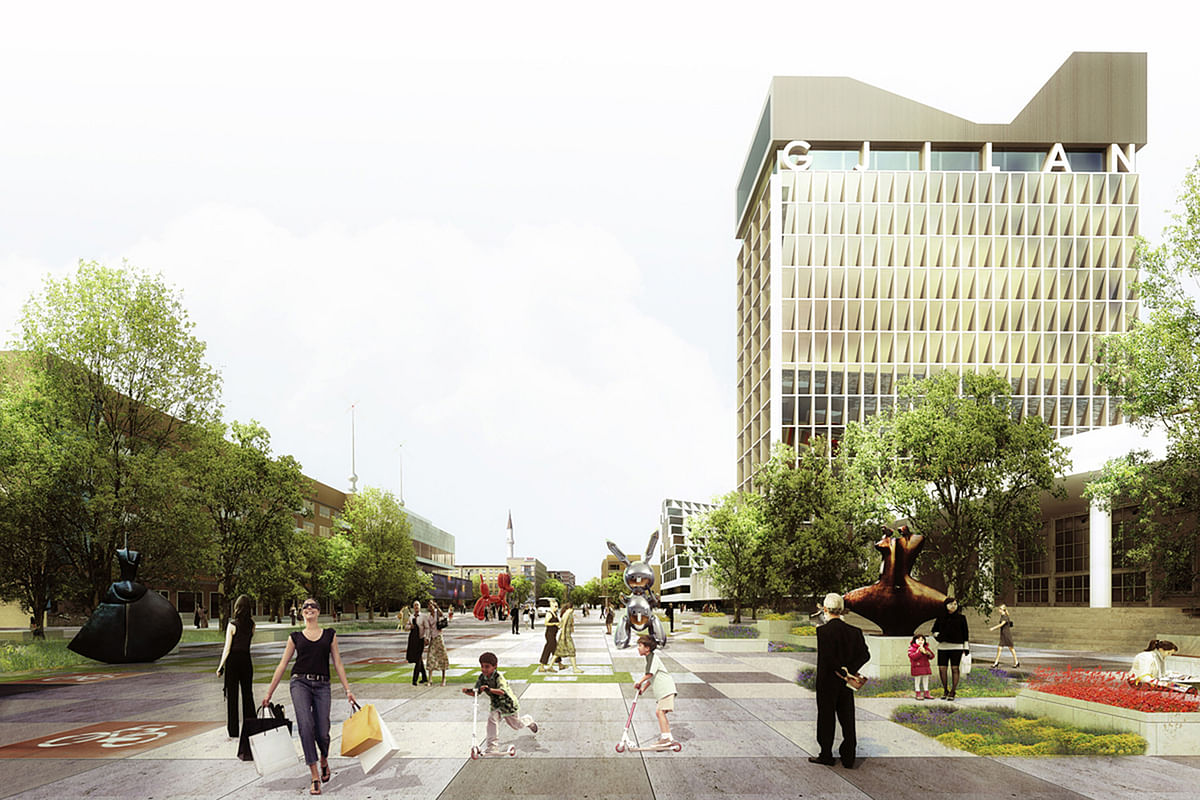
Related
Here comes our first Europan 12 project of this week -- and it's a double whammy. Rotterdam-based Estudio Lunar scored runner-up for both the Gjilan site in E12 Kosovo (which had no declared winner) and for Regionale 2016 in E12 Germany.
Read up on the team's proposals below.
"Welcome to Urban Wellness!" - E12 Kosovo, Gjilan - Project description:
"well·ness [wel-nis] Show IPA noun
1. the quality or state of being healthy in body and mind, especially as the result of deliberate effort.
2. an approach to healthcare that emphasizes preventing illness and prolonging life, as opposed to emphasizing treating diseases.
The current situation of Gjilan is not the result of a controlled planning, it has been the consequence of multiple historical and, also recent, events that induced to the emergence of urban figures that were answering to the immediate needs but not responding to a planning with an idea of future for the city. Wars, political events, earthquakes, economic crisis … have left in Gjilan several scars and erroneous situations that now it’s time to be corrected."
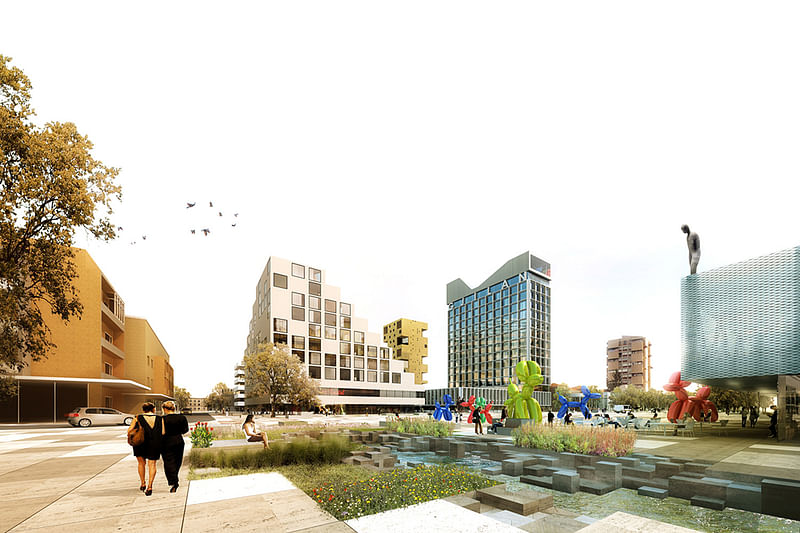
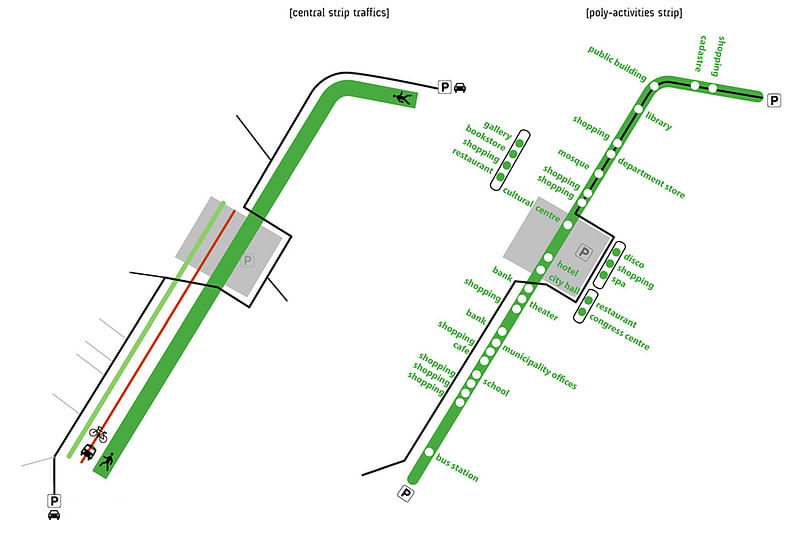
"Now a days, we find a city were the central spine is a busy road transited not only by the cars of Gjilan but also by cars that come from nearby cities or just need to cross Gjilan. The central point of the city is a roundabout for cars were the city jail is also situated. We could define the current situation as an 'urban sickness' or a point where the city of Gjilan cannot evolve more without a correction."
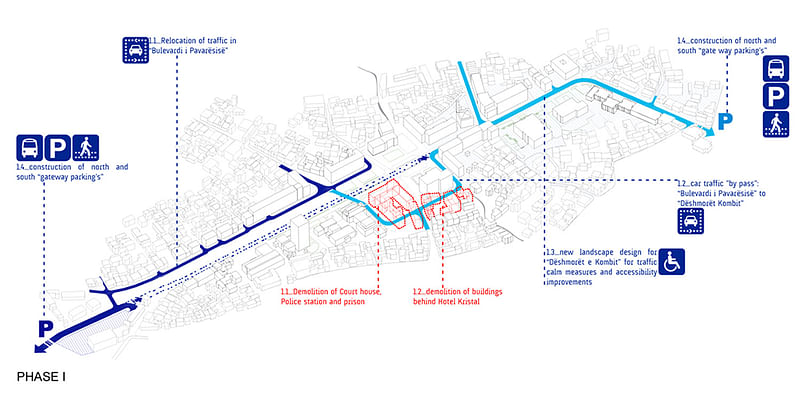
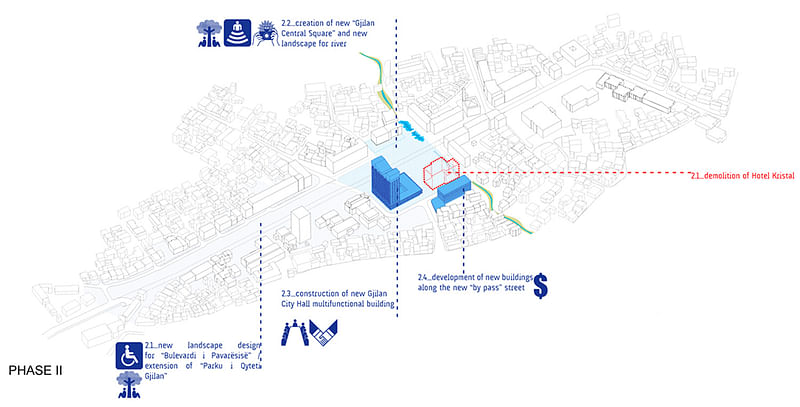
"The city is only a limited extent product of conscious planning; largely it is the result of rules and forces originating far beyond the realm of planning. A city’s development is shaped by the consequences and side effects of laws, funding programs, markets, and technological progress. Relevant interventions in urban development upon changes in the social parameters, such as in cultural investment, property laws or economic development measures."
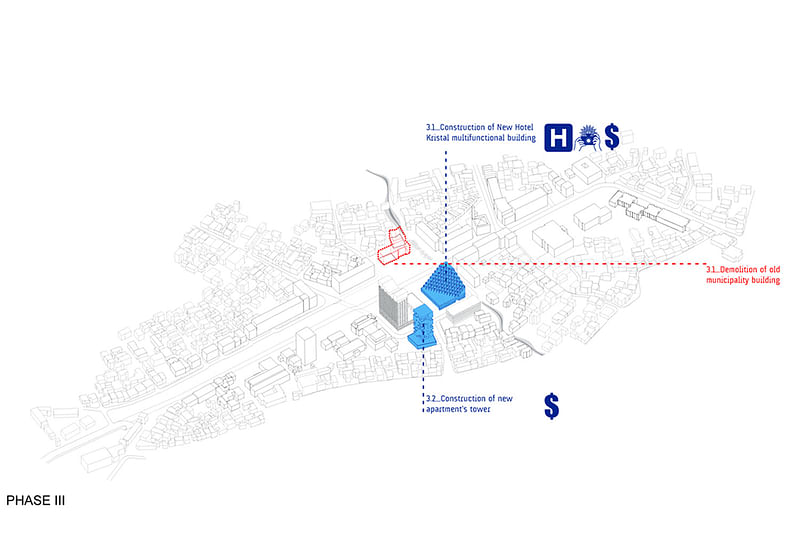
"Nobody can offer the perfect planning solution for the overall city and future growing of Gjilan area without solving first the current issues; we offer a urban vision to create a totally new healthy image of Gjilan city, changing the character of its central spine and creating a new Central Square of Culture, dominated by new buildings that will situate Gjilan as a urban reference in its area. We’ll create a new starting point for a great future of this city and area by systematizing its public space."
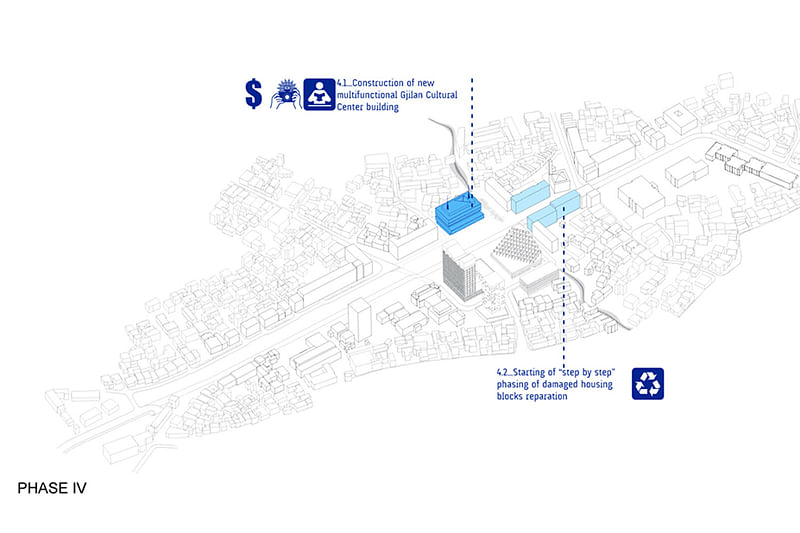
Project credits:
Welcome to URBAN Wellness!
Competition: EUROPAN 12, Gjilan (KO)
Prize: Runner-up
Year: 2013
Team: J. Marcos Rodríguez, Conxa Gené, Carmen Largacha, Javier Iñigo, Joan Alomar, Ignacio Llorens
"Kein Land für alte Männer" - E12 Germany, Regionale 2016 - Project description:

"TERRITORIAL, URBAN AND ARCHITECTURAL TOOLS TO INVEST IN SOCIETY: Kein Land für alte Männer is a bet on Münsterlanders. Kein Land für alte Männer is a toolbox of territorial strategies, urban planning and architectural vision on how local inhabitants must understand and learn from their environment in order to better manage their own resources. They are our key component to face the upcoming energetic, economic and social challenges for the next decades."
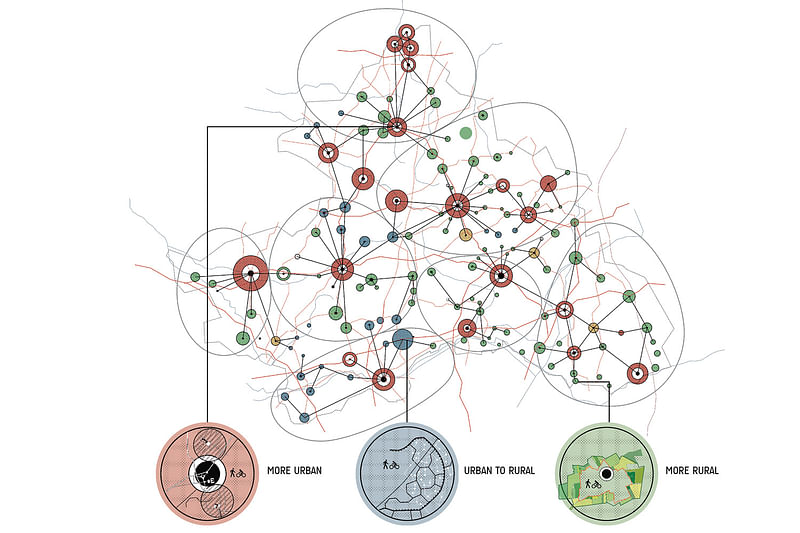
"New defeats are right ahead German society, some of them related to the obsolescence of certain old structures. The urban settlements from the 60-70’s are meant to be the hinge between past and future. Within the brick walls of those houses lies the most recent lesson of this society: the social and urban models inherited from them are gone. Beyond those walls there is a large knowledge to be awaken and ready to be shared. The dialogue between old and new generations needs to happen outdoors, at contemporary meeting points where to shape and develop new strategies all together."
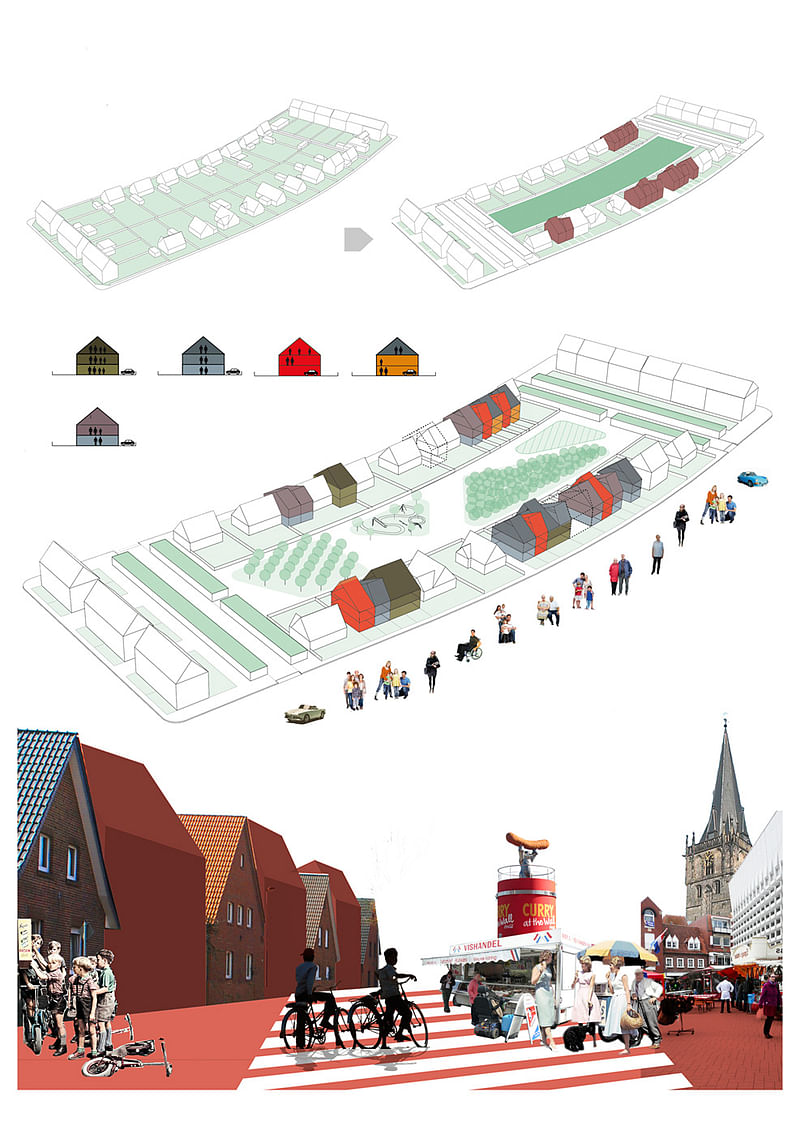
"AHAUS: We are supplying a social sustainable process of densification for the Innenstadt Oost. The change in the urban regulation wants to make the blocks more flexible in order to host more houses. Current residents can chose to remain in their own homes, to extend them or to build or sell new building surfaces. The partial lost of garden surface is compensate with double benefits: better public/collective courtyards and economical benefits to improve energetic systems in the future. Accessibility is been provided, ground floor dwellings would be always desirable for elderly.
Homes that are left from old people can be retrofitted and improved, new owners would find suitable houses with flexible typologies at affordable prices and very conveniently located. The retrofitted environment would become attractive for new investors, public investment is required only in the first phases trying to consolidate a meaningful space directly connected with the school and a future civic centre oriented into elderly which can become attractor for the rest of the city and urban link to the inner-city."
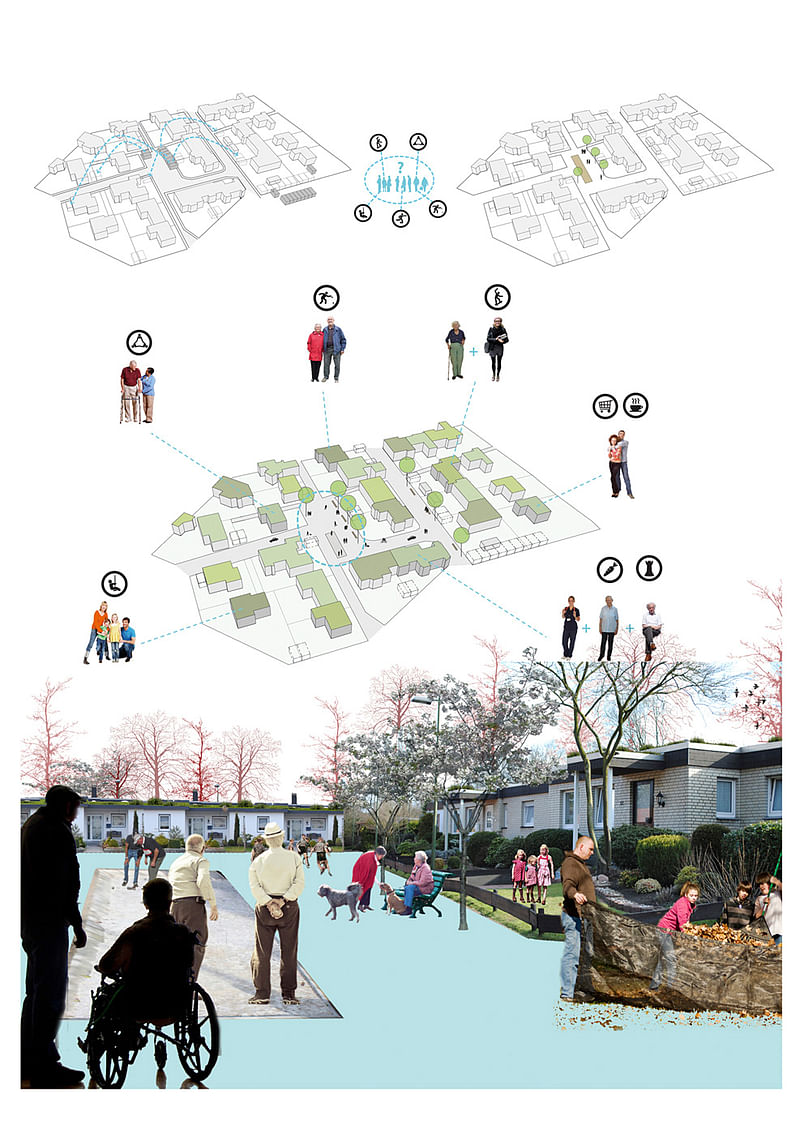
"DORSTEN: The main ambition for Barkenberg is to achieve a mixed society. A system of housing-share would provide reasonable housing costs to young people. Elderly who are hosting them would received at the same time assistance and care. There is a solidarity exchange of services by the guest and some financial income for the host. Both generations are coming together to share certain mutual services, increasing permeability between two very age elongated sectors of society. These resulting structures would perceived their neighbourhoods as extension of their homes. Once the idea of sharing is attached to people they would be able to think in a broader way, trying to invest their own resources in new sustainable ways of energy source. Geothermal energy is proposed as an example of this collective energetic systems."
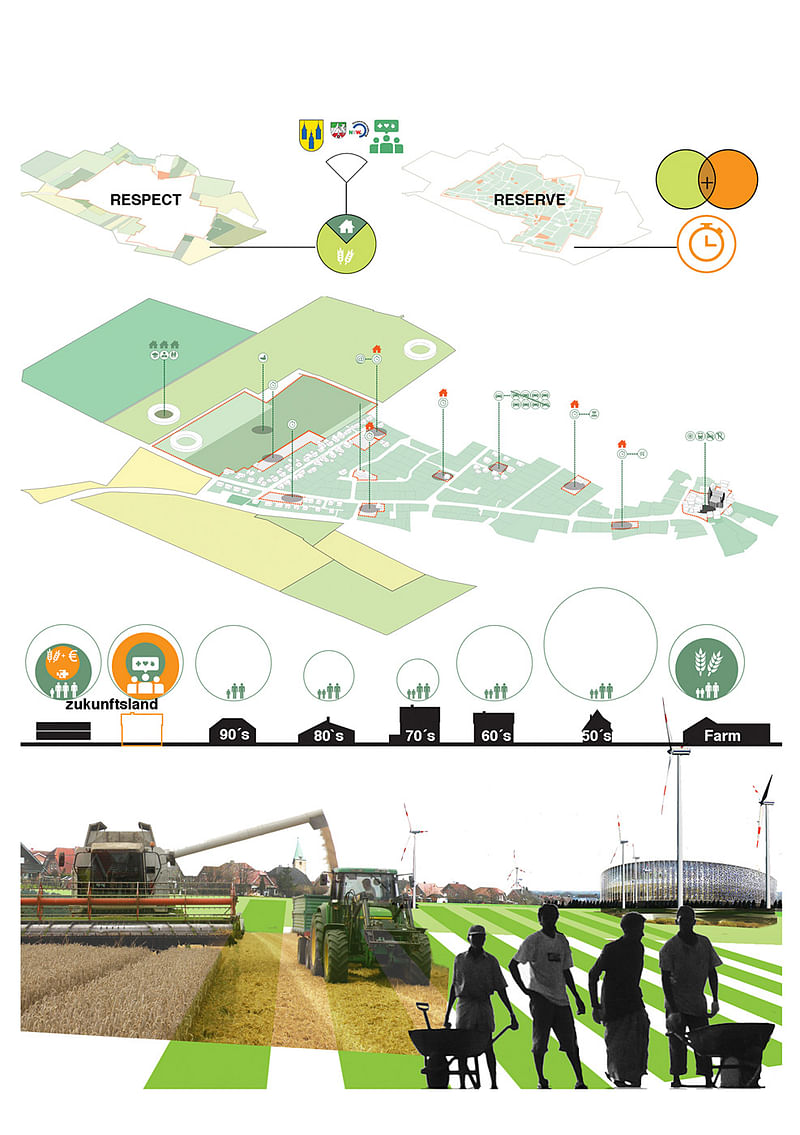
"SÜDKIRCHEN: Südkirchen main topic is how to avoid monofounctionality for the future. Two strategies are provided to face the steady situation, which might turn into certain growth in two decades. Our proposal is based in a more rational land structure. First strategy defines vacant houses and lots as reservations for future urban infill, allowing shared and temporarily use of them until they get occupied for new buildings. Potential densification and private investment is allow to keep and increase population within the contour of the current urban shape. Second strategy focuses in how to deal with future growth on the landscape. Agricultural areas around the village feel the pressure of possible urban growths. New settlements would be allowed in those properties under restricted conditions.
Inspired by the old land structure and farm typologies we introduce a system of co-ownership of the future homes. It would be required that at least a third of the housing would be owned by the municipality, a second third by associations such as the School of Business of Nordkirchen Schools and last third would be up to private owners and citizens that associated in baugruppen (building groups) to develop their own houses. To retain activity and activate land use besides agriculture, some business- atelier space related with the local entrepreneurship would be also desired. Coordinated by a local business incubator in the activity area.
Project credits:
Kein Land für alte Männer
Competition: EUROPAN 12, Regionale 2016 (GE)
Prize: Runner-up
Year: 2013
Team: J. Marcos Rodríguez, Conxa Gené, Carmen Largacha, Javier Iñigo, Joan Alomar, Ignacio Llorens
All images courtesy of Estudio Lunar.
For more Europan 12 proposals on Bustler, click here.

Share
0 Comments
Comment as :